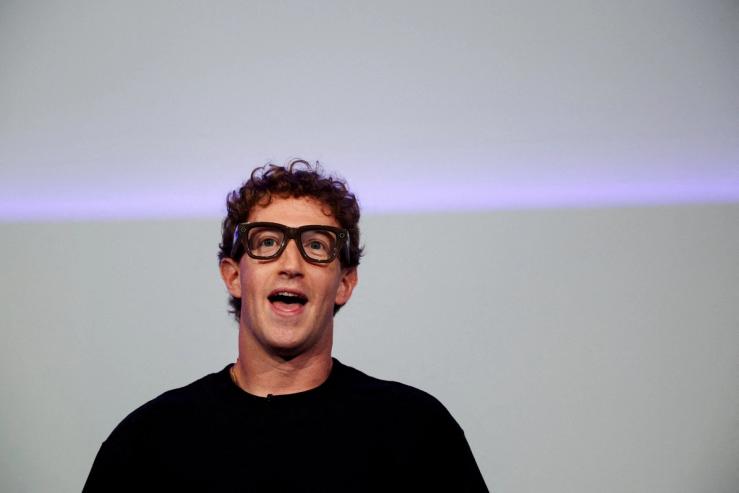Reed’s view
On Wednesday, Mark Zuckerberg unveiled the consumer electronics gadget that Apple should have come up with.
The Meta Ray-Ban Display glasses are a technical achievement and, more importantly, may represent the next great computer input device — an included wristband reads the subtle electrical signals emanating from the muscles in your wrist.
But these glasses are worthless without a mobile phone. And for now, most of the potential customers for this $799 device are iPhone users. Apple, which has made no secret of its distaste for Meta, could stand in the way of entire buckets of functionality, just like it did with smartwatch makers when it cleared the path for its own product. (Remember the Pebble?)
Apple has been trying to make augmented reality glasses for years, ultimately settling on a virtual reality headset that flopped. It doesn’t make sense for Apple to hand this victory to Meta, even if Tim Cook is fighting a US Justice Department antitrust lawsuit.
The reason Meta might succeed is AI, which should be powerful enough to break free of walled gardens, and not just Apple’s. At some point, the phone will go away altogether. It’s an already antiquated device that is holding back innovation. Until then, it will keep weighing us down.
In this article:
Room for Disagreement
As The Verge noted, there are plenty of use cases that could be the “killer app” for these glasses, such as live captions that show you the text of what the person in front of you is saying in real time, even translating it if necessary (like from Gen Z slang, for instance). Turn-by-turn walking directions is another one. And I have an idea myself: A grocery shopping list that tells you when you walk by the thing you need and then checks it off the list when you grab it.
Notable
- The race to capture the smart glasses market may be ramping up, with The Information reporting that Amazon was working on a rival product earlier in September.


